Ch 15: First Amendment Freedoms
Summary:
Chapter 15 is an overview of the rights that we as American Citizens are given through the first amendment to the constitution. These rights would be the Freedom of Speech, Freedom of the Press, Freedom of Religion, Freedom of Assembly, The Separation of Religion and Government, as well as the Freedom of Association. The chapter then breaks down the individual Freedoms given to us and how the rights have now been changed and expanded through several cases like Miller v. California and Schenck v United States.The chapter also goes over the rights we were given in the original constitution and how the Bill of Rights now limits the actions of state governments through the Fourteenth Amendment.
Key terms:
1)Writ of habeas corpus - This is the court order requiring an explanation as to why a prisoner is being held in custody
2)Ex Post Facto law - Retroactive criminal law that works to the disadvantage of a person.
3)Bill of Attainder - is any legislative act that inflicts punishment. This includes the deprivation of property without a trial on named individuals or specific groups. 4)Due Process Clause - the clause in the fifth amendment that limits the power of the national government. There is a similar clause in the Fourteenth Amendment that prohibits state governments from depriving any person of life, liberty, or property without due process of the law. | 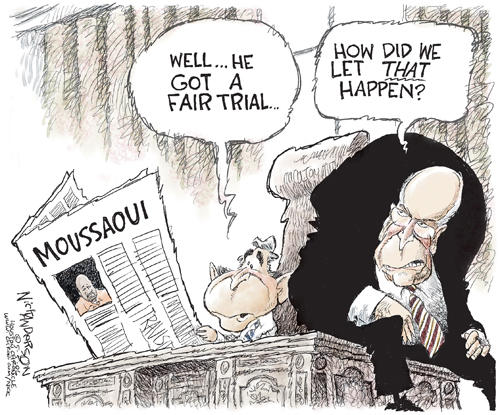 |
5)Selective
Incorporation - The process by which provisions of the Bill of Rights
are brought within the scope of the Fourteenth Amendment and applied to
state and local governments
6)Establishment Clause - The clause in the first amendment that states that Congress shall make no law respecting an establishment of religion. The Supreme Court has also interpreted the clause to forbid support of the government of any or all religions.
7)Vouchers - Money that the government provides to parents to pay their children's tuition in a public or private school of their choice.
8)Free
Exercise Clause - A clause in the First Amendment that states that
Congress cannot make any law that prohibits the free exercise of
religion.
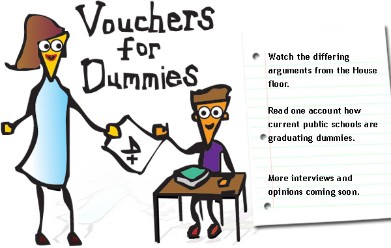 11)Prefered Position Doctorine - interpretation of the First Amendment that holds the freedom of expression essential to democracy and that the government should not punish what the people say but only what they do. 12)Non-protected Speech - Libel, Obscenity, Fighting words, and commercial speech, which are not entitled to constitutional protection in all circumstances. | 9)Bad Tendency Test -Interpretation of the First Amendment that would permit legislature to forbid speech that encourages people to engage in illegal action. 10)Clear and Present Danger Test - Interpretation of the First Amendment that stops the government form interfering with speech unless the speech presents a "clear and present danger" that will lead to evil or illegal activities. 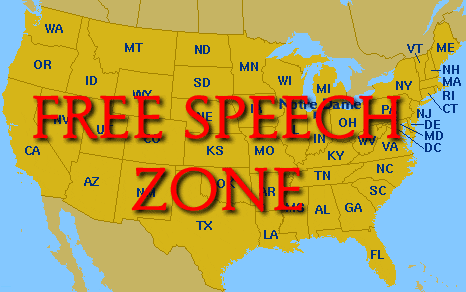 |
13)Libel - the written defamation of another person. For public officials and public figures, the constitutional tests designed to restrict libel actions are especially rigid.
14)Sedition - the attempt to overthrow the government by force or the use of violence to interrupt its activities.
15)Obscenity - Quality or state of a work that taken as a whole appeals to prurient interest in sex by depicting sexual conduct in a patently offensive way that lack serious literary, artistic, political, or scientific value.
16)Fighting words - words that by their very nature inflict injury on those to whom they are addressed or incite tem to act of violence.
17)Commercial Speech - adveritisments and commercials for products and services. In order to discourage false or misleading ads, these recieve less protection from the First Amendment.
17)Prior Restraint - censorship imposed before a speech is made or a newspaper is published. This is usually deemed unconstitutional.
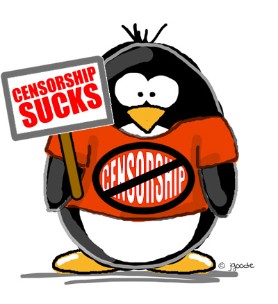 |
18)Civil Disobedience - deliberate refusal to obey a law or comply with the orders of public officials as a means of expressing opposition
Review!!
1.The First Amendment grants numerous rights to American Citizens. Name 3 of them.
2.The Fifth Amendment does what?
3.___________________ have low First Amendment rights in order to prevent misleading and false advertisments
4.Words that inflict harm upon a person or instigate violent acts are called _____________________
5.Vouchers give what to low income families?
6.According to the First Amendment Legislature cannot pass laws that restrict the practice of religion. This is generally known as the _____________________ clause.
7.The government can interfere with any speech so long as it presents __________________________.
8._____________Speech is also considered to be protected under the First Amendment. An example of this would be the burning of the American Flag.
9.Define Libel.
10.The refusal to obey a law or comply with public officials in order to express one's opinion is ___________.
11.Obsenity is the quality or state of work that appeals as a whole to the interest of sexual conduct and lack what four types of value?
12.Interrupting the governments activities through violence is considered _________________.
13.Supreme court has forbidden to support of any religion under what clause in the First Amendment?
14.What is a bill of attainder?
15.Because of _____________________ you must be informed of why you are being held in prison.
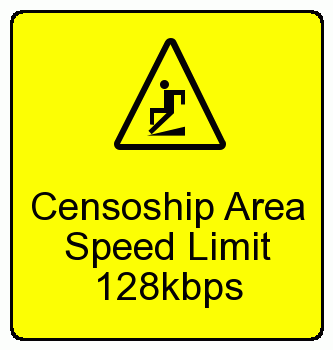 |  |
1.The First Amendment grants numerous rights to American Citizens. Name 3 of them.
Freedom of Speech, Freedom of the Press, Freedom of Religion, Freedom of Assembly, The Separation of Religion and Government, Freedom of Association.
2.The Fifth Amendment does what? limits the power of the national government.
3.Commercial Speech has low First Amendment rights in order to prevent misleading and false advertisments.
4.Words that inflict harm upon a person or instigate violent acts are called Fighting words.
5.Vouchers give what to low income families? Money for tuition in the families school of choice
6.According to the First Amendment Legislature cannot pass laws that restrict the practice of religion. This is generally known as the free exercise clause.
7.The government can interfere with any speech so long as it presents a clear and present danger that can incite evil or illegal acts.
8.Symbolic Speech is also considered to be protected under the First Amendment. An example of this would be the burning of the American Flag.
9.Define Libel. The written defamation of another person.
10.The refusal to obey a law or comply with public officials in order to express one's opinion is Civil Disobedience.
11.Obsenity is the quality or state of work that appeals as a whole to the interest of sexual conduct and lack what four types of value? literary, artistic, political, and scientific.
12.Interrupting the governments activities through violence is considered sedition.
13.Supreme court has forbidden to support of any religion under what clause in the First Amendment? Free Establishment
14.What is a bill of attainder? any legislative act that inflicts punishment. This includes the deprivation of property without a trial on named individuals or specific groups
15.Because of habeus corpus you must be informed of why you are being held in prison.